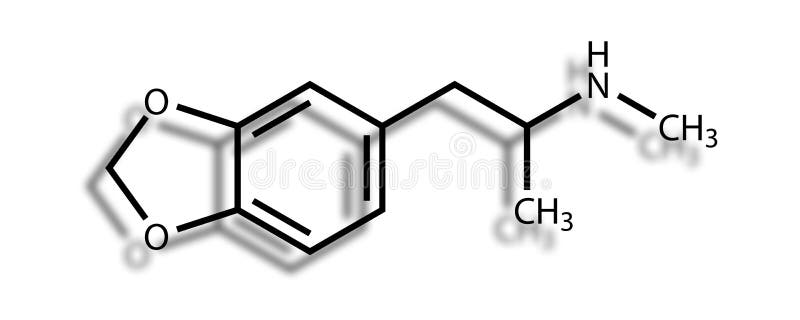MDMA Therapies and Research
- “Strengthening the Moral Compass”: The Effects of MDMA (“Ecstasy”) Therapy on Moral and Spiritual Development
 This paper argues that therapy with the drug MDMA (also known as Ecstasy) can have positive results in pain reduction for post-traumatic stress disorder and can also encourage moral development and the growth of compassion as well as religious and spiritual insight. Today, small-scale drug trials of MDMA are being performed in a highly controlled clinical environment without any spiritual or moral interpretative framework to help the subjects understand their experiences. Such a framework could help patients integrate and find meaning in the intense, traumatic experiences they have undergone. Pastoral counselors, psychologists, and religious professionals might find it useful to explore this form of therapy further.
This paper argues that therapy with the drug MDMA (also known as Ecstasy) can have positive results in pain reduction for post-traumatic stress disorder and can also encourage moral development and the growth of compassion as well as religious and spiritual insight. Today, small-scale drug trials of MDMA are being performed in a highly controlled clinical environment without any spiritual or moral interpretative framework to help the subjects understand their experiences. Such a framework could help patients integrate and find meaning in the intense, traumatic experiences they have undergone. Pastoral counselors, psychologists, and religious professionals might find it useful to explore this form of therapy further. - Should addiction researchers be interested in psychedelic science?: MDMA therapy for substance use disordersThe authors offer observation on research into psychedelic science. They reveal the advantages and disadvantages of psilocybin-assisted therapy. The authors outline the reasons researchers worldwide should be interested in 3,4-methylenedioxymethamphetamine (MDMA) developments. They also mention the barriers faced by the Psychedelic Research in Science & Medicine (PRISM).
- Scaling Up: Multisite Open-Label Clinical Trials of MDMA-Assisted Therapy for Severe Posttraumatic Stress Disorder
 Posttraumatic stress disorder (PTSD) is a debilitating mental health condition associated with serious adverse health outcomes and functional impairment. Previous MDMA–assisted therapy (MDMA-AT) studies have shown promising results in single site studies. Two open-label studies tested this modality in multisite clinical trials to assess the feasibility of scaling this manualized therapy across 14 North American sites. Method: Cotherapist dyads were trained in the manualized MDMA-AT protocol and administered three experimental sessions 3 to 5 weeks apart among participants with severe PTSD. Cotherapist dyads were provided clinical supervision and evaluated for protocol adherence by centralized raters. Clinician-Administered PTSD Scale for DSM-5 (CAPS-5) assessed change in symptoms severity. Results: Adherence rating scores were high across cotherapist dyads ( M = 95.08%, SD = 3.70%) and sites ( M = 95.23%, SD = 2.20%). CAPS-5 scores decreased following 3 MDMA-AT sessions at 18 weeks post baseline (Δ M = −29.99, Δ SD = 13.45, p < .0001, n = 37, Cohen’s d = 2.2, confidence interval [1.97, 2.47]). MDMA was well tolerated. Conclusions: These findings corroborate previous results that MDMA-AT can achieve significant improvements in PTSD symptom severity and demonstrate scalability of manualized therapy across clinic sites in the United States and Canada.
Posttraumatic stress disorder (PTSD) is a debilitating mental health condition associated with serious adverse health outcomes and functional impairment. Previous MDMA–assisted therapy (MDMA-AT) studies have shown promising results in single site studies. Two open-label studies tested this modality in multisite clinical trials to assess the feasibility of scaling this manualized therapy across 14 North American sites. Method: Cotherapist dyads were trained in the manualized MDMA-AT protocol and administered three experimental sessions 3 to 5 weeks apart among participants with severe PTSD. Cotherapist dyads were provided clinical supervision and evaluated for protocol adherence by centralized raters. Clinician-Administered PTSD Scale for DSM-5 (CAPS-5) assessed change in symptoms severity. Results: Adherence rating scores were high across cotherapist dyads ( M = 95.08%, SD = 3.70%) and sites ( M = 95.23%, SD = 2.20%). CAPS-5 scores decreased following 3 MDMA-AT sessions at 18 weeks post baseline (Δ M = −29.99, Δ SD = 13.45, p < .0001, n = 37, Cohen’s d = 2.2, confidence interval [1.97, 2.47]). MDMA was well tolerated. Conclusions: These findings corroborate previous results that MDMA-AT can achieve significant improvements in PTSD symptom severity and demonstrate scalability of manualized therapy across clinic sites in the United States and Canada.
Opportunity to Participate in Clinical Trials for MDMA Therapy

A Multi-Site Phase 3 Study of MDMA-Assisted Psychotherapy for PTSD (MAPP1)
Sponsor:
Multidisciplinary Association for Psychedelic Studies
Information provided by (Responsible Party):
Multidisciplinary Association for Psychedelic Studies
Detailed Description:
Posttraumatic stress disorder (PTSD) is a stress-related psychiatric condition that may occur following a traumatic event such as war, disaster, sexual abuse, violence, terrorism, or accidents. PTSD can negatively impact a person's daily life, resulting in relationship difficulties, difficulty in finding and maintaining a job, reduced cognitive and psychosocial functioning, substance abuse, high-cost healthcare use, and increased depression and suicide risk. Available PTSD treatments, including medications and therapy, effectively treat only a fraction of people who try them for adequate dose and duration. People with PTSD can be treated with psychotherapies and pharmacotherapies. In the past decade, there has been a growing amount of research into medications and other methods that may augment the effectiveness of psychotherapy for PTSD.
3,4-methylenedioxymethamphetamine (MDMA) induces serotonin release and has been shown to enhance fear memory extinction, modulate fear memory reconsolidation, and bolster social behavior in animal models. Pooled analysis of six Phase 2 trials of MDMA-assisted therapy for PTSD have now shown promising safety and efficacy findings.
This multi-site, double-blind, randomized Phase 3 study assessed the efficacy and safety of MDMA-assisted therapy versus placebo with therapy in participants diagnosed with at least severe PTSD. The study will be conducted in N ≈ 100 participants. Participants will be enrolled in one of two groups at a 1:1 ratio. A flexible dose of MDMA or placebo, followed by a supplemental half-dose unless contraindicated, is administered during the Treatment Period with manualized therapy in three monthly Experimental Sessions. This ~12-week Treatment Period is preceded by three Preparatory Sessions. During the Treatment Period, each Experimental Session is followed by three Integrative Sessions of non-drug psychotherapy. Initial doses per Experimental Session include 80 mg or 120 mg of MDMA or placebo followed 1.5 to 2 hours later by a supplemental half-dose (40 or 60 mg). Total amounts of MDMA to be administered per Experimental Session range from 80 mg to 180 mg.
The Primary Outcome measure is change in Clinician Administered PTSD Scale for DSM-V (CAPS-5) from Baseline to Primary Endpoint (18 weeks post-Baseline). Drug safety will be assessed by measuring blood pressure, heart rate and body temperature during experimental sessions, collecting adverse events and measuring suicidal thoughts or behaviors with the Columbia Suicide Severity Rating Scale (adapted C-SSRS).
Primary Outcome Measures :
- Change From Baseline to Primary Endpoint in Clinician Administered PTSD Scale for DSM-V (CAPS-5) [ Time Frame: Baseline to 18 weeks post enrollment confirmation ]
The Clinician-Administered PTSD Scale for DSM-V (CAPS-5) is a clinician administered and scored assessment of PTSD symptoms via structured interview based upon PTSD diagnosis in DSM-5. The total severity score is a sum of symptom frequency and intensity scores for the subscales B (re-experiencing), C (avoidance) and D (hypervigilance) and ranges from 0 to 136, with higher scores indicating greater severity of PTSD symptoms.
Secondary Outcome Measures :
- Change From Baseline to Primary Endpoint in Sheehan Disability Scale (SDS) Total Score [ Time Frame: Baseline to 18 weeks post enrollment confirmation ]
The Sheehan Disability Scale (SDS) is a clinician-rated assessment of functional impairment that was adapted for the purposes of this study to limit missing item-level data as per the FDA requirements and included use of the three-item mean as the total score and imputation of work-related impairment. The SDS is a 3-item scale measuring the severity of disability in the domains of work, family life/home responsibilities and social/leisure activities, with each item scored on a ten-point Likert scale from 0 ('not at all impaired') to 10 ('very severely impaired'). The SDS total score was the mean of the 3 item responses. The SDS total score ranged from 0 to 10, with higher scores indicating greater functional impairment
A multi-site Phase 3 study of MDMA-ASSISTED psychotherapy for Ptsd (mapp1) - full text view. Full Text View - ClinicalTrials.gov. (2018). Retrieved from https://clinicaltrials.gov/ct2/show/NCT03537014.
